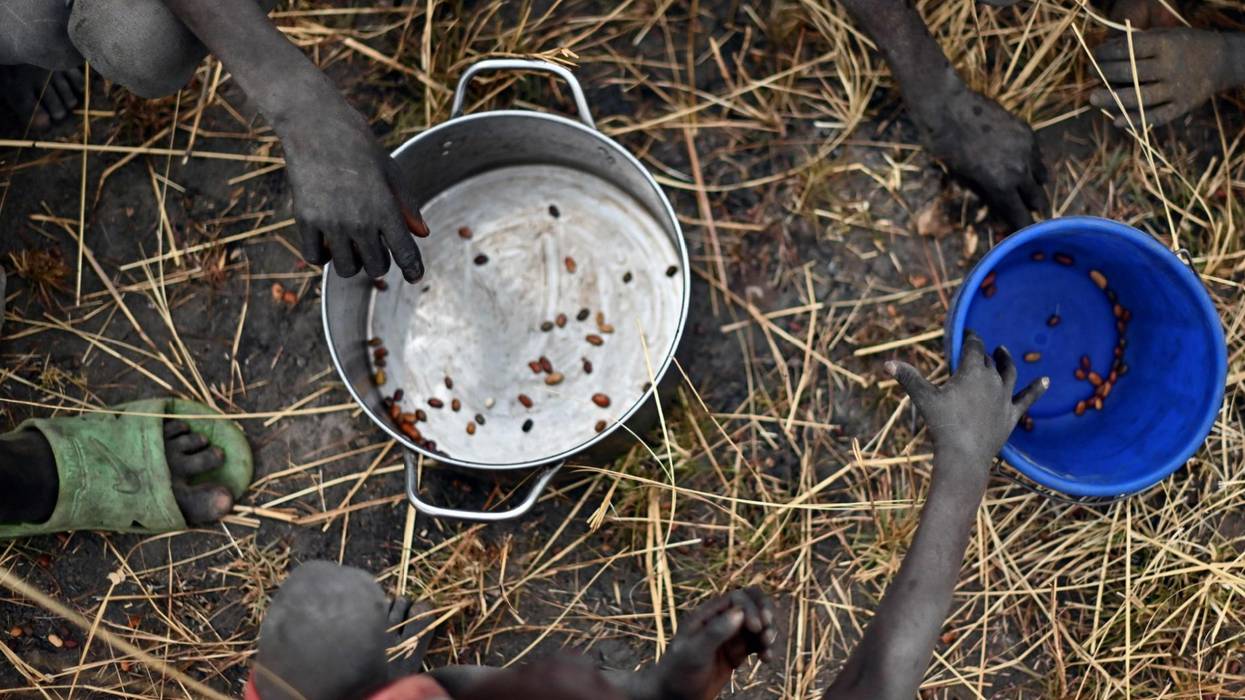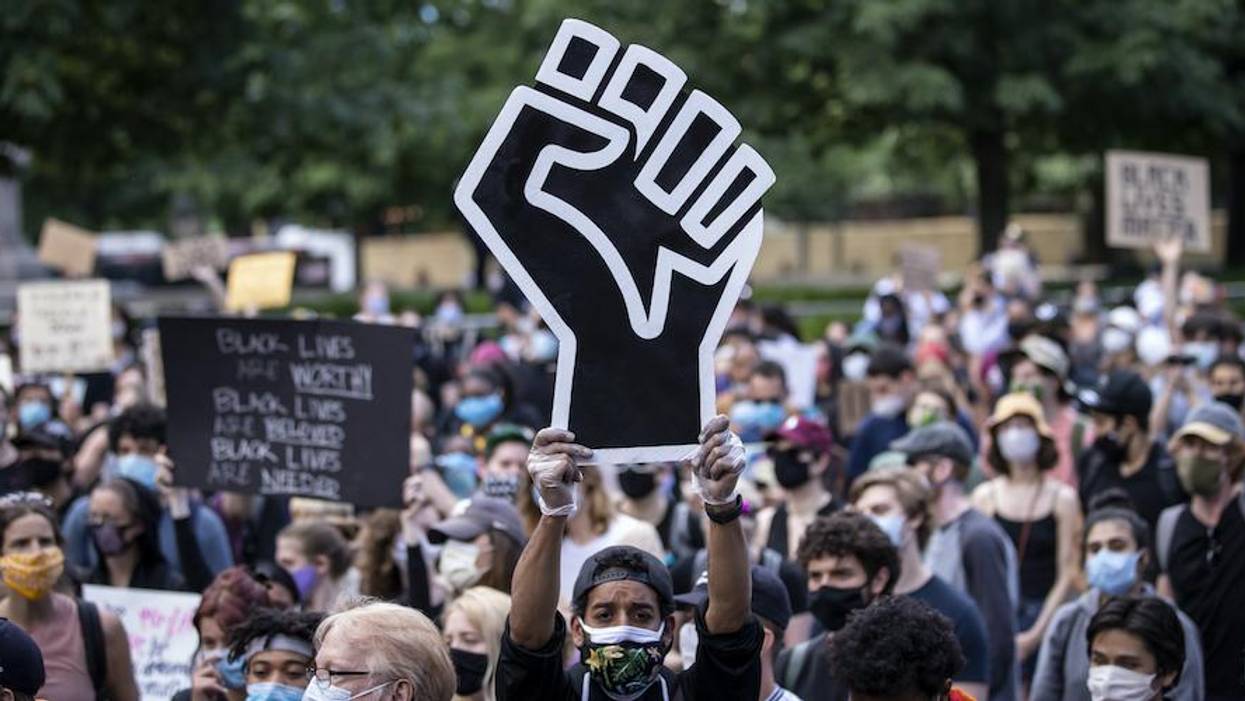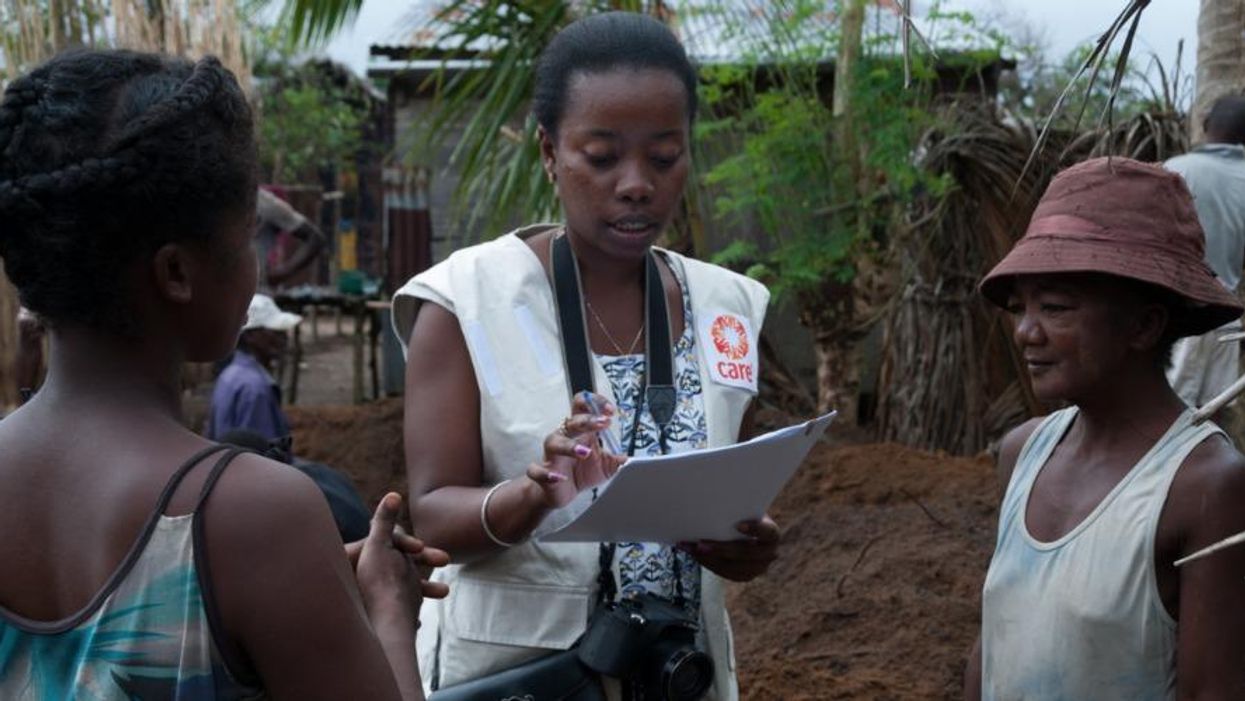Fighting for the Planet Means Sovereignty for the Sahel
Any movement concerned with moving from an extractive to regenerative economy must stand against U.S. and Western intervention in the Sahel and for Pan-African projects and a multilateral world.
At the core of most demands for the U.S. empire, we’re asking for kindergarten ethics—is that a stretch? It’s what the climate movement teaches about our relationship with the Earth: not to take and take and extract and extract because we have a reciprocal relationship. For most of its history, the U.S. has ignored this, and that continues to be the case when it comes to the string of accusations leveled against the current president of Burkina Faso, Ibrahim Traoré.
And if all of us—the climate movement, peace lovers, people with basic compassion—want to save the planet, we need to stand against the attempts of the U.S., NATO, and Western powers in trying to intervene in the Sahel’s process of sovereignty.
Several weeks ago, Michael Langley, the head of U.S. Africa Command (or AFRICOM), testified in front of the Senate Armed Services Committee and stated that Ibrahim Traoré, the current president of Burkina Faso, “is using the country’s gold reserves for personal protection rather than for the benefit of its people,” an absurd claim, considering that the U.S. Department of Defense, which Langley works for, has stolen $1 trillion from U.S. taxpayers in this year’s budget alone. What’s more, AFRICOM itself has a deadly, well-documented history of plundering the African continent, often in coordination with NATO.
As people of the world rise against imperialism and neocolonialism, it is up to us in the U.S. climate movement to stand unequivocally in support of projects of self-determination.
Take a guess why Langley might want to delegitimize Traoré’s governance and the larger project of the Alliance of Sahel States (AES)—made up of Burkina Faso, Mali, and Niger—all of which have recently allied under a confederation after recent seizures of power. Any takers? Hint: The answer is natural resources and military presence. Traoré has nationalized Burkina Faso’s foreign-owned gold mines in an attempt to actually use the land’s resources to benefit its people. Similarly, upon taking power in Niger, current President Abdourahamane Tchiani nationalized uranium and banned foreign exports. Notably, a quarter of Europe’s uranium, crucial for energy usage, comes from Niger. Considering Traoré’s crucial role in developing the identity of the AES as one of the more vocal and charismatic leaders, targeting Traoré is part of a larger project by the U.S.-E.U.-NATO axis targeting the AES project at large. Recently, this new AES leadership has launched new green energy and educational initiatives. Meanwhile, the U.S. has pulled out of the Sahel states as the AES asserts its sovereignty in defiance of decades of Western-backed instability.
Traore’s Burkina Faso is not the first Pan-African project to come under attack by the U.S.-E.U.-NATO axis of power. Just as the vague claims from Langley serve to cast doubt on Traoré’s ability to lead a nation, past Pan-African leaders who have dared to challenge imperialism and prioritize their citizens have also come under fire. For instance, former president of Burkina Faso, Thomas Sankara, was assassinated in 1987 after putting the Burkinabè people’s needs first by rejecting International Monetary Fund loans and demands, implementing nationwide literacy and vaccine campaigns, and spearheading housing and agrarian reform. Time and again, France and the U.S. have taken decisive action against leaders who have promoted Pan-Africanism and environmental stability over the interests of Western powers. We’re watching it happen live now, and have a responsibility to stand up for Traoré and the AES before it’s too late.
When a country doesn’t bend its knees to Washington, the standard U.S. playbook is one of environmental death, either via hybrid or classic warfare. Venezuela has refused to grant U.S. corporations unfettered access to its oil reserves—the world’s largest—and thus has been forced to use them as a lifeline. The U.S. has punished Venezuela by imposing unilateral sanctions that have prevented the proper maintenance of the country’s oil pipelines, resulting in harmful leaks. In the Congo—one of the lungs of the Earth—the West’s decades-long quest for uranium and other rare minerals has led to mass deforestation, destroyed water quality, and unleashed military forces that have killed millions. And of course, the U.S. is backing the ecocide and genocide in Palestine in order to maintain the existence of a proxy state in an oil-rich region.
When the U.S. military—the No. 1 institutional polluter in the world—“intervenes,” the only environmental outcome is climate collapse. And even when countries play by Washington’s rules, the U.S. will still militarize, build more toxic bases, seek continued extraction, and create mass poverty. For the survival of the people and planet, we must resist this imperial expansion.
Any movement concerned with moving from an extractive to regenerative economy must stand against U.S. and Western intervention in the Sahel and for Pan-African projects and a multilateral world. The emergence of a multipolar world means that projects like the AES have partners beyond the region: During Traoré’s most recent visit to Moscow, he met with the heads of state of Russia, China, and Venezuela. The U.S., of course, threatened by the loss of its dominion, insists on pursuing a dangerous cold war against China, to contain China’s influence, refuses to cooperate on green technology, and plows through any region that it views as a battleground, be it the Asia-Pacific or the Sahel. And always at the expense of life in all forms.
So if we are in a project for life, why, then, are we often met with hesitation in climate spaces to stand against this imperialist extraction? We need to reflect on a few questions. Whose lives do we sacrifice for “strategy”? Which environmental sacrifice zones are we silent about because of the “bigger picture?” What extraction and militaristic buildup do we let happen to theoretically prevent planetary death that is already happening via our own government down the road? Are we avoiding building connections with popular movements because of donors who only fund dead ends? We have a choice to make: Allow the doomsday clock threatening climate death and total catastrophe to keep ticking or reverse course and breathe life into something new.
Traoré’s historic meeting with China, Russia, and Venezuela is a glimpse of what’s on the horizon. As people of the world rise against imperialism and neocolonialism, it is up to us in the U.S. climate movement to stand unequivocally in support of projects of self-determination.
Although our lifestyles will certainly look different once we no longer have uninhibited access to the gold, cobalt, uranium, and other resources that are routinely extracted from the African continent and its people, we must prioritize building a more just, healthy relationship with the planet and all of its people. If leaders such as Traoré succeed in revolutionizing agriculture and resource extraction at a sustainable pace that benefits workers, what might that signal for a new world order in which exploited Africans and their lands do not form the cheap material base for the world? What might we build in place of extractive economies to usher in a green future for all?.



